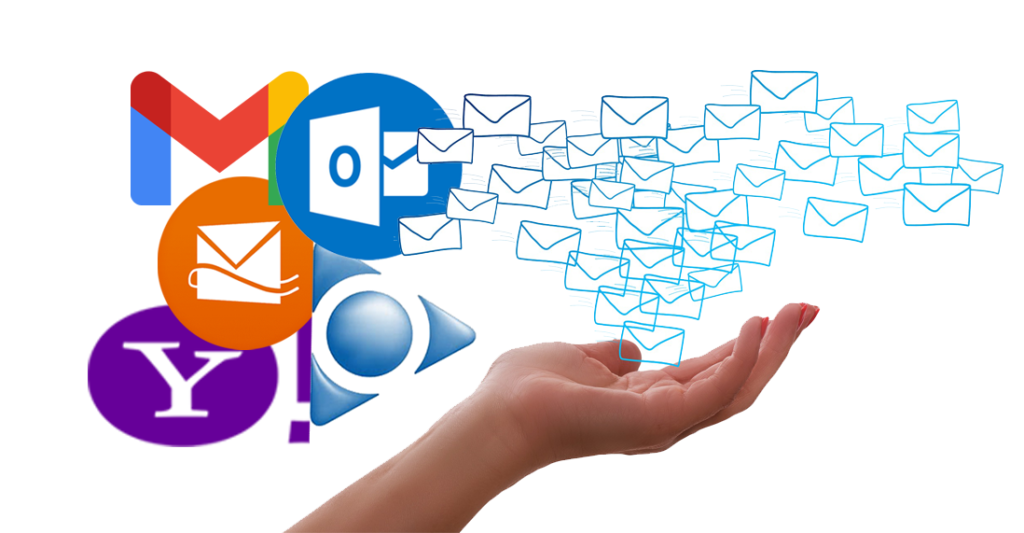
In the business world of today, you can’t last a day without sending out or receiving an e-mail. Be it a message from a supplier, an inquiry from a potential client, or just spam—e-mails have completely and utterly lodged itself into how we do our work.
Given this universality of e-mails, we sometimes forget that something as ubiquitous as your e-mail address says a lot about you and your company. Very much like how people used to perceive differences between restaurants that used generic plastic spoons and forks and those which had monogrammed silverware, e-mail addresses are now being put under the same microscope.
It might seem harsh and snobbish, but a lot of people judge you right away after seeing what comes after the “@” in your company’s e-mail. Although discrimination based on pre-conceived stereotypes is not necessarily something to be encouraged since there are always many exceptions to each rule, knowing about them couldn’t hurt.
So how does your e-mail address rate, and what do they say about your business?
@aol.com You’ve been in the industry since before the new millennium. And you haven’t tried to keep up since. Although not common for businesses outside the United States, e-mail addresses like these (with your service provider’s name as the domain), give pretty much the same impression: old, backward, and small-time. It might be an okay e-mail address for that 80-year-old Hardware Store owner who convinced his grandson to help him with this “internet”-doohickey, but that’s about it.
You’ve been in the industry since before the new millennium. And you haven’t tried to keep up since. Although not common for businesses outside the United States, e-mail addresses like these (with your service provider’s name as the domain), give pretty much the same impression: old, backward, and small-time. It might be an okay e-mail address for that 80-year-old Hardware Store owner who convinced his grandson to help him with this “internet”-doohickey, but that’s about it.
@hotmail.com Almost the same exact image as the one before. In places like the Philippines, having a Hotmail account was a bit of a counter-culture choice in the early years of the internet age. But outside of the country, it’s the biggest e-mail service provider and is about as generic and unprofessional as serving canned sardines at your restaurant—still edible, but sort of fishy.
Almost the same exact image as the one before. In places like the Philippines, having a Hotmail account was a bit of a counter-culture choice in the early years of the internet age. But outside of the country, it’s the biggest e-mail service provider and is about as generic and unprofessional as serving canned sardines at your restaurant—still edible, but sort of fishy.
@yahoo.com  One of the most-preferred e-mail addresses, especially since most users get it to compliment the Yahoo! Messenger that’s still dominating online instant messaging 10 years ago. However, the widespread nature and the ease in registration has become a double-edged sword with this particular address: you seem less credible and genuine since anyone can make a new account, and it’s harder to get an original user name (spawning horrors such as telecom4u2009_store@yahoo.com), detracting even more from your credibility. Even the much-touted localized domains, such as @yahoo.com.ph, simply emphasize the fact that you’re a newcomer to the internet and that you had to settle.
One of the most-preferred e-mail addresses, especially since most users get it to compliment the Yahoo! Messenger that’s still dominating online instant messaging 10 years ago. However, the widespread nature and the ease in registration has become a double-edged sword with this particular address: you seem less credible and genuine since anyone can make a new account, and it’s harder to get an original user name (spawning horrors such as telecom4u2009_store@yahoo.com), detracting even more from your credibility. Even the much-touted localized domains, such as @yahoo.com.ph, simply emphasize the fact that you’re a newcomer to the internet and that you had to settle.
@gmail.com The BMW to Yahoo’s Hyundai, after its launch this e-mail address has become the de facto choice for those who haven’t bought their own domain but don’t want to appear amateurish. Given its original exclusivity (early versions were invitation-only), Gmail has remained branded with a tech-savvy, elite vibe that still persists to this day—despite the fact that it’s as easy to register an account as any other wide service provider. Featuring a cleaner interface with less visible bloatware (but it’s still there—like love handles hidden beneath a corset, the ads, features, and promotions are simply waiting for the ideal time to pounce and strike unwieldy terror on the unsuspecting) than its main competitor, as well as the recent comprehensive integration with social media giants like Facebook and Twitter, having an e-mail address with a gmail.com attached at the end has become pretty much the universal ID for the modern internet citizen. Whether or not you want to be known as one of the herd—the technocrati herd, but herd nonetheless—is up to you.
The BMW to Yahoo’s Hyundai, after its launch this e-mail address has become the de facto choice for those who haven’t bought their own domain but don’t want to appear amateurish. Given its original exclusivity (early versions were invitation-only), Gmail has remained branded with a tech-savvy, elite vibe that still persists to this day—despite the fact that it’s as easy to register an account as any other wide service provider. Featuring a cleaner interface with less visible bloatware (but it’s still there—like love handles hidden beneath a corset, the ads, features, and promotions are simply waiting for the ideal time to pounce and strike unwieldy terror on the unsuspecting) than its main competitor, as well as the recent comprehensive integration with social media giants like Facebook and Twitter, having an e-mail address with a gmail.com attached at the end has become pretty much the universal ID for the modern internet citizen. Whether or not you want to be known as one of the herd—the technocrati herd, but herd nonetheless—is up to you.
@mybusinessname.com Having your own domain pretty much tells everyone you’re on top of the game. Knowing how having your own domain precludes the fact that you shell out some cash regularly just to have the right sends out the message you want: we’re professional, we pay for our stuff, and we don’t settle for anything less than the best. It’s the difference between a salesman who hands you his number on a slip of paper, and one who gives you a shiny embossed business card. It’s all about class. Snobbish? Maybe. Worth it? Definitely.
Having your own domain pretty much tells everyone you’re on top of the game. Knowing how having your own domain precludes the fact that you shell out some cash regularly just to have the right sends out the message you want: we’re professional, we pay for our stuff, and we don’t settle for anything less than the best. It’s the difference between a salesman who hands you his number on a slip of paper, and one who gives you a shiny embossed business card. It’s all about class. Snobbish? Maybe. Worth it? Definitely.
With everything being said, choosing the right e-mail address to go for, as well as for deciding whether or not paying for your own domain name is still up to you. Not everyone makes a snap decision on a company’s or a person’s level of professionalism and corporate-clout based on their e-mail address, but it never hurts to have that extra edge.
Either way, knowing these notions won’t hurt. In fact, it’ll help you figure out whether your messages are ending up in somebody’s inbox, spam folder, or trash bin.
Just in case you’re convinced you need your own custom email address, sign-up here.
